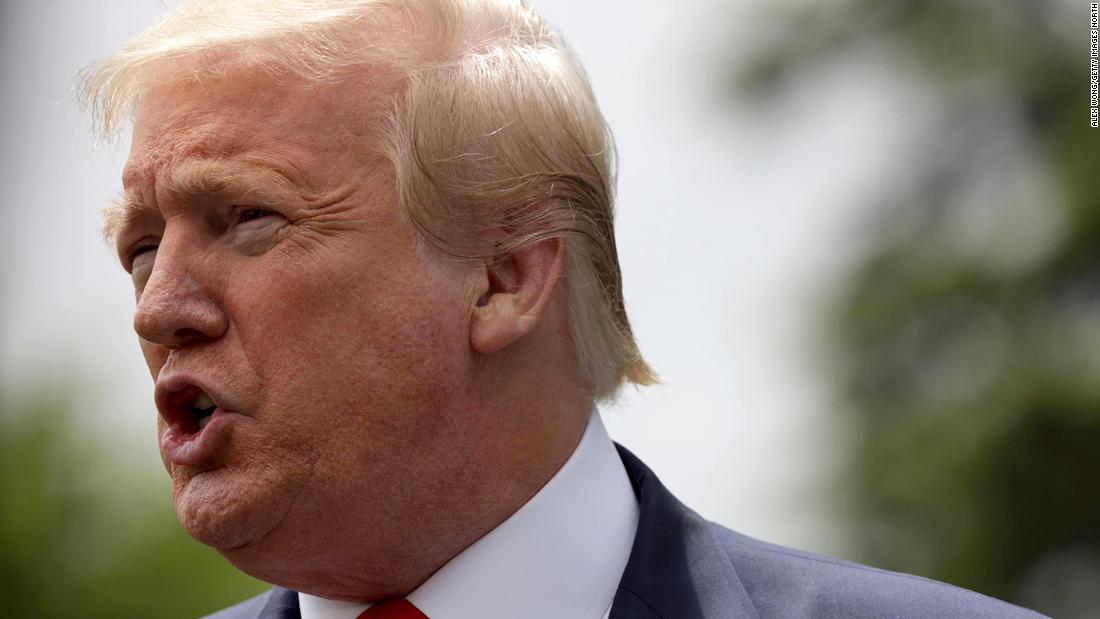
Today as the nation's chief executive overseeing his own public health crisis, Trump continues to comprehensively misinform the public about the coronavirus, offering remarks riddled with false, misleading or scientifically questionable claims.
Trump spread misinformation on how HIV/AIDS is transmitted
Trump's long history of spreading medical misinformation about disease outbreaks stretches back as far as 1993 during the HIV/AIDS crisis when he suggested the virus could be spread through kissing.
While discussing his sex life on an episode of The Howard Stern Show, Trump said, "I saw a report the other day, you may get AIDS by kissing." He repeated the claim two more times, agreeing with false assertions made by Stern and co-host Robin Quivers.
HIV/AIDS cannot be transmitted via saliva, and it is unclear which report Trump was referring to at the time.
"It is extraordinarily unlikely that a healthy person can be infected by HIV through French kissing."
Trump's misinformed comments on HIV/AIDS did not end there.
In the same 1993 Howard Stern Show appearance, Trump, a notorious germaphobe who has disparaged the practice of shaking hands, said during a discussion on avoiding sexually transmitted diseases and testing his sexual partners that people who test positive for AIDS went out and intentionally spread the virus.
There's anger, there's hatred and it's really dangerous."
Now, almost three decades after Trump pushed debunked AIDS myths, the President works closely with Fauci to inform the public on the coronavirus pandemic, though Fauci's calm, precise style has caused friction in a White House known for its mixed and muddled messaging.
Warned against vaccines and falsely said they cause autism in 2009
A decade and a half after his HIV/AIDS comments, at the beginning of the swine flu outbreak in 2009, Trump warned Americans against overreacting to the new H1N1 virus, comparing it to a bad flu season during a Fox News appearance.
There is no evidence that vaccines cause or are linked to autism, according to the CDC.
Trump added that he wouldn't let his children get the swine flu vaccine.
"I don't think I'd inject them with all sorts of vaccines that really nobody right now knows if it works with respect to what they're, what they're looking at right now, Neil," he said.
Wrongly disputed CDC's medical advice on 2014 Ebola outbreak
In the fall of 2014, when the global medical community was responding to the Ebola virus epidemic in West Africa, Trump was one of the most prominent US figures wrongly disputing scientific consensus about the virus and sowing disinformation.
But you know, they do have to suffer consequences."
On an October 27, 2014, appearance on Fox & Friends, Trump again stoked people's fears of the virus and dismissed the medical consensus that the Ebola virus wasn't easily spread.
"Nobody's seen anything like this for hundreds of years and it can happen over here and it's, you know, when they talk about: 'it's very hard to catch,' 'it's not very contagious.'" Trump said.
"I think it's probably, maybe just the opposite."
As President, Trump offers questionable scientific claims on the novel coronavirus
During his own administration's handling of the coronavirus pandemic, Trump has continued to offer questionable scientific claims and dangerous medical advice to Americans during the pandemic.
At a campaign rally in New Hampshire on February 10, 2020, Trump claimed, without evidence, that the coronavirus would "miraculously" go away in the spring as the weather warmed and predicted that the virus would "all work out fine."
A month later on March 11, Trump claimed that "the risk is very, very low" for the vast majority of Americans.
That claim contrasted to the one Fauci and other federal health experts testified to Congress that same day, stating "the potential global public health threat posed by this virus is high, but right now, the immediate risk to most Americans is low."
In a tweet from March 22, Trump argued the "cure" of locally-mandated social distancing measures --which studies show mitigate the spread of the virus -- could be worse than the virus itself.
"I happen to be taking it."
When asked what was his evidence of hydroxychloroquine's positive benefits, Trump pointed to "positive calls" he received about it.
Trump, who has not tested positive for the coronavirus, admitted he doesn't know if the drug works, and he claimed, "If it doesn't, you're not going to get sick and die."
The US Food and Drug Administration has warned against the use of hydroxychloroquine to treat the coronavirus, noting the drug should only be used in hospitals or clinical trials because it can cause serious and potentially fatal side effects.
